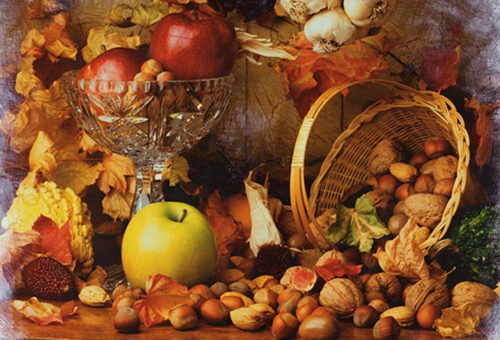A paradox is defined as a statement or situation that seems to be absurd or contradictory but is or appears to be true. The paradox of Christmas has served to amaze us for 2000 years. The 19th century English hymn writer William C. Dix was no less amazed. Dix, who was not a musician and whose heart was really in writing poetry, worked as the manager of a marine insurance company in Scotland. Among the 40 hymns he wrote is this now classic Christmas carol, “What Child Is This?” (set to the tune of the 16th century English melody “Greensleeves”). Dix let its three stanzas point out some of the paradoxes of Jesus Christ’s first coming.
Although each stanza ends with the description that this is “the Babe, the Son of Mary,” the verses show us clearly that this is no ordinary baby, no ordinary son. This Babe, like many babies, sleeps on His mother’s lap. But the first verse reminds us that this Babe has shepherds hurrying to see him because angels have appeared to them with a heavenly birth announcement. (The Bible doesn’t say they “sang” it, but many hymn writers took that liberty.)
The second verse is even more paradoxical. If we had never heard the story of Christ, wouldn’t it seem strange that an obviously very special Babe was born in a stable, not a palace? But, the composer informs us, that isn’t the strangest part of the story. It will seem stranger still when we understand that this baby, this capitalized “Child,” is here to plead for sinners, to be nailed, to be pierced, to bear a cross for me and for you. For what He came to do for us, we are encouraged to hail Him “the Word made flesh.”
The carol makes clear that He was born poor and would grow up to suffer. That seems logical because the poor of the world often do suffer the most. But suddenly in the third stanza, we meet another paradox. We’re invited to bring Him what would be in that time the gifts given not to a peasant but to a king: “incense, gold and myrrh.” And we’re invited, whether peasants or royalty ourselves, to “own Him” because this Child, the “King of kings salvation brings.” Furthermore, we’re told that the throne this King will occupy is not located in a distant land but is found in each loving heart. Once we enthrone Him there, we will have the Christmas presence and the joy He came to give us (John 15:11).
Mary, the virgin mother of the Babe, like every new mother probably sang a lullaby, but the Bible tells us that concerning His birth she also pondered these things in her heart (Luke 2:19). During her pregnancy and for the rest of her life, she would have many paradoxes to ponder.
This Christmas season I’ve decided the best way for me to “hail the Word made flesh,” as William Dix urged, is to spend some time pondering the paradoxical. Below is the beginning of my list of paradoxes.
Care to join me? What will you be pondering this season?
The Babe had a birthday, but Jesus had no beginning and will have no end (John 1:1-2).
The One who is the Life (John 14:6) allowed himself to die.
He who knew no sin became sin for us (2 Cor. 5:21).
The Lamb of God is the Lion of the Tribe of Judah (Rev. 5:5-8).
What Child Is This? by William Dix
What Child is this who, laid to rest
On Mary’s lap is sleeping?
Whom angels greet with anthems sweet,
While shepherds watch are keeping?
This, this is Christ the King,
Whom shepherds guard and angels sing;
Haste, haste, to bring Him laud,
The Babe, the Son of Mary.
Why lies He in such mean estate,
Where ox and ass are feeding?
Good Christians, fear, for sinners here
The silent Word is pleading.
Nails, spear shall pierce Him through,
The cross be borne for me, for you.
Hail, hail the Word made flesh,
The Babe, the Son of Mary.
So bring Him incense, gold and myrrh,
Come peasant, king to own Him;
The King of kings salvation brings,
Let loving hearts enthrone Him.
Raise, raise a song on high,
The virgin sings her lullaby.
Joy, joy for Christ is born,
The Babe, the Son of Mary.
About Vicki Huffman
National award-winning journalist Vicki Huffman's latest book is Soon to Come: The Revelation of Jesus Christ. It is a verse by verse exposition of the only purely prophetical book in the New Testament. Her other five books are: The Jesus Moses Knew: How to See Christ in the Old Testament; A Secret Hope (novel); Still Looking: Finding the Peace of God in Job Loss; Plus Living: Looking for Joy in All the Right Places, and The Best of Times. All are available in print and e-book on amazon.com. Vicki is a national award-winning author who has taught the Bible for many years. She was an editor for several Christian publishing houses, including Thomas Nelson and David C. Cook Ministries.
- Web |
- More Posts(120)




